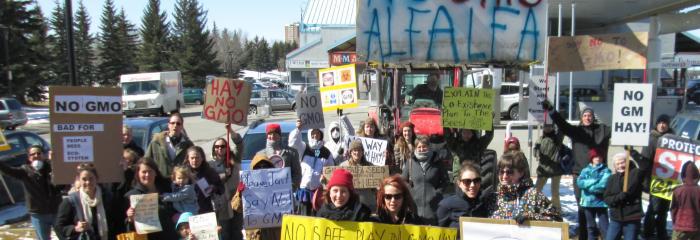NFU asks PM to address ag crises in Minster’s mandate
Dear Prime Minister Trudeau
The National Farmers Union would like to extend our congratulations to you for your successful re-election, as well as to all newly-elected and returning Members of Parliament. We also extend our appreciation to all candidates who participated in the election.
Agriculture policy is fundamental to Canada’s economic, social and environmental well-being. We go to the polls once every few years, but we eat three times a day, and farmers look after their land, crops and livestock 24-7. As Canada’s only national voluntary membership general farm organization, the National Farmers Union represents farmers in all provinces and two territories, and whose farms produce the full range of agricultural products that our communities and export customers depend upon. Today, we would like to present you with our key priorities and recommendations for the next Agriculture Minister’s mandate.
Canadians are counting on your government to wisely and fairly address the food system weaknesses made visible by the pandemic, reverse biodiversity loss in our agricultural landscapes, drastically reduce the greenhouse gas emissions from agriculture and help farmers adapt to the climate crisis, rebuild rural prosperity by addressing massive and growing inequality in the allocation of farm revenues and net income, and address the alarming loss of farmers by making farming both possible and attractive for the next generation. The next Federal-Provincial-Territorial Agriculture Policy Framework will be a powerful tool to advance these goals. We set out our priorities for the Next Policy Framework in our June 2021 letter sent to all of Canada’s agriculture ministers.
Climate change will be a top priority for this Parliament. The NFU, as a founding member of Farmers for Climate Solutions, urges you to accelerate concrete, effective actions to protect Earth’s climate including rapid implementation of on-farm GHG emission reduction, including the previously announced 30% fertilizer-emission reduction target. Climate solutions must support Canadian farmers’ livelihoods, encourage farmer-led innovations in low-input production, and expand the capacity of our public research institutions and extension agronomists. They must also rebuild regional food system infrastructure so our farmers can provide more of the food Canadians eat. This will strengthen local economies, domestic markets and food security, which will be critical as we face a global climate crisis.
Livestock producers across Canada are facing unprecedented pressures due to pandemic impacts on meat processors combined with drought-related feed shortages. A severe shortage of local and regional abattoir capacity has put many farmers in an impossible position. Yet animal agriculture is an important element in local food systems and in regenerative and agroecological farming systems. A ministerial mandate to help more provincially licensed abattoirs set up and maintain viable businesses will advance your government’s goals for food security, climate change mitigation, good jobs and rural economic development.
Canadians also recognize the critical importance of Supply Management. Prior to the election, we were pleased to see multi-party support for Bill C-216, which, if passed, will stop Canadian trade negotiators from conceding supply-managed sector market share in future trade agreements. We urge you to maintain that position, to vigorously defend Canada’s dairy sector against the current US trade challenge, and to work with the provincial marketing boards to enhance opportunities for new entrants, on-farm processing, alternative production systems and direct marketing of supply-managed commodities. In this regard, we invite you to read the NFU’s discussion paper Strengthening Supply Management: Defending Canadian control of our market space and advancing food sovereignty .
Shortly before the election was called the Ministers of Agriculture, Health and Environment jointly committed to additional funding for independent research on pesticides and a plan to consult the public on the Pest Control Products Act (2002) to consider ways to balance how pesticide review processes are initiated and to increase transparency. It is essential that this review of the Act prioritize the precautionary principle, and be carried out in the public interest without involvement of pesticide lobby groups. Furthermore, the Minister’s mandate should include the express commitment to uphold the values of transparency and independence from the influence of corporate interests in all regulatory responsibilities within the portfolio.
As you prepare Mandate Letters, we hope the Agriculture Minister can be directed to:
- ensure that emissions reduction and climate adaptation are top priorities in the negotiations of the Next Agricultural Policy Framework (2023-28), and that Federal, Provincial, and Territorial spending in support of climate policies and agri-environmental programs make up a larger part of the next framework;
- safeguard supply management from further erosion when trade agreements are negotiated, and encourage marketing boards to create more opportunities for new entrants and direct marketers to participate;
- work with the provinces to increase the number, capacity and viability of provincially licensed local and regional abattoirs as critical infrastructure within our domestic food system;
- safeguard our agricultural-related regulations from corporate influences, ensure transparency and support of our public regulators, independent scientists and public research institutions to serve the public interest; and
- ensure the precautionary approach and independent (non-industry) science is prioritized when considering changes to the Pest Control Products Act.
The multiple crises before us are filled with danger. This Parliament will face unprecedented challenges, and it also has been given the opportunity to govern in a way that brings Canadians together in solidarity to face these complex problems. We urge you to listen carefully to the diversity of rural and urban voices in all regions and to build upon the strengths we have to offer. Thank you for your attention to our concerns and priorities.
Sincerely
Katie Ward,
President, National Farmers Union
**Translation supported by Heritage Canada

